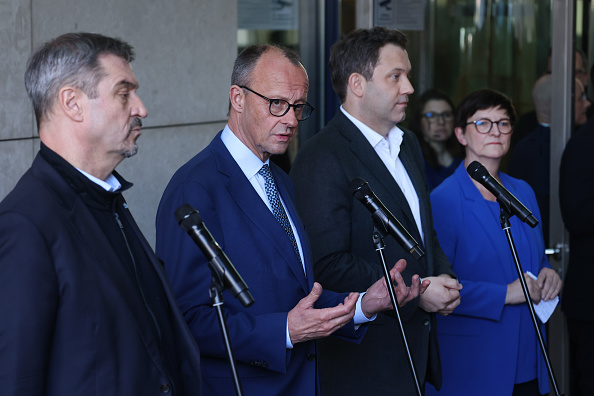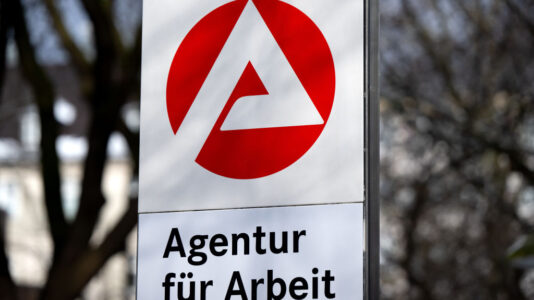The coalition agreement between the CDU/CSU and SPD is finally in place, and a press conference confirming the deal is expected later on Wednesday, according to reports in the German media.
As confirmed by Bild, Germany’s main legacy parties have agreed on the distribution of key ministries — a deal that will see the CDU control seven departments, the CSU three, and the SPD five.
The CDU/CSU will take the helm at the Interior Ministry, replacing the SPD’s Nancy Faeser, as well as the Foreign Office. Additionally, the CSU will head both the Ministry of Agriculture and the Ministry of Research, while the CDU will take charge of a newly established Digital Ministry.
On the SPD side, the Social Democrats have secured the coveted Ministry of Finance and the Ministry of Defense — a move that will see current Defense Minister Boris Pistorius continue in his role. The left-wing party will also take the lead of the justice ministry.
The agreement will give the center-right CDU/CSU parties the opportunity to shape the country’s migration policy, having promised an overhaul during the election campaign. In contrast, the SPD will continue to play a significant role in shaping fiscal and defense strategies and a time of economic and geopolitical uncertainty.
The breakthrough came on Wednesday morning, following marathon talks at CDU headquarters that continued late into the night on Tuesday. Party leaders — CDU chief Friedrich Merz, CSU head Markus Söder, and SPD co-leaders Saskia Esken and Lars Klingbeil — are expected to hold a joint press conference to announce the news on Wednesday afternoon.
If all goes according to plan, Friedrich Merz could be elected Chancellor in early May, with May 7 reportedly under discussion for the Bundestag vote.
However, not everyone within the coalition ranks is fully convinced. Philipp Türmer, leader of the SPD youth-wing Juso, warned the parliamentary party that member approval is not a given, emphasizing that members would scrutinize the agreement closely. “If it includes border closures that violate European law, or clear breaches of the constitution, then that would cross our red lines,” Türmer stated.
He did, however, acknowledge the limited alternatives should members not back the deal, saying, “The situation is different from 2017 because parliamentary majorities have become more complicated, and ultimately we have only one possible democratic option,” implicitly dismissing the Alternative for Germany (AfD) as a viable coalition option.
On fiscal policy, negotiators reportedly agreed to ease the tax burden on citizens. According to Bild, tax brackets will shift slightly later and become marginally flatter. The SPD’s push for tax hikes on high earners and medium-sized businesses has been dropped. While corporate income tax reductions are planned, they will not take effect until 2028. Additionally, businesses can expect turbo depreciation of 30 percent annually over three years.
However, the much-debated solidarity surcharge — a special tax on top of income tax, corporate tax, and capital gains tax in Germany — will not be entirely abolished.
The coalition announcement comes amid the latest polling, which shows the CDU/CSU has plummeted by five points from its election result to 24 percent — the party’s lowest level in three years. Meanwhile, the Alternative for Germany (AfD) has surged to 25 percent, overtaking the Union for the first time as the strongest force in a national poll.
The AfD’s ascent highlights the growing dissatisfaction with the mainstream parties despite the coalition breakthrough.
Merz, however, remains publicly optimistic. Speaking to Die Zeit, he acknowledged “unrest at the base of the CDU” but insisted that “in the leadership of the party and the parliamentary group, unity and decisiveness have grown in recent days.”






